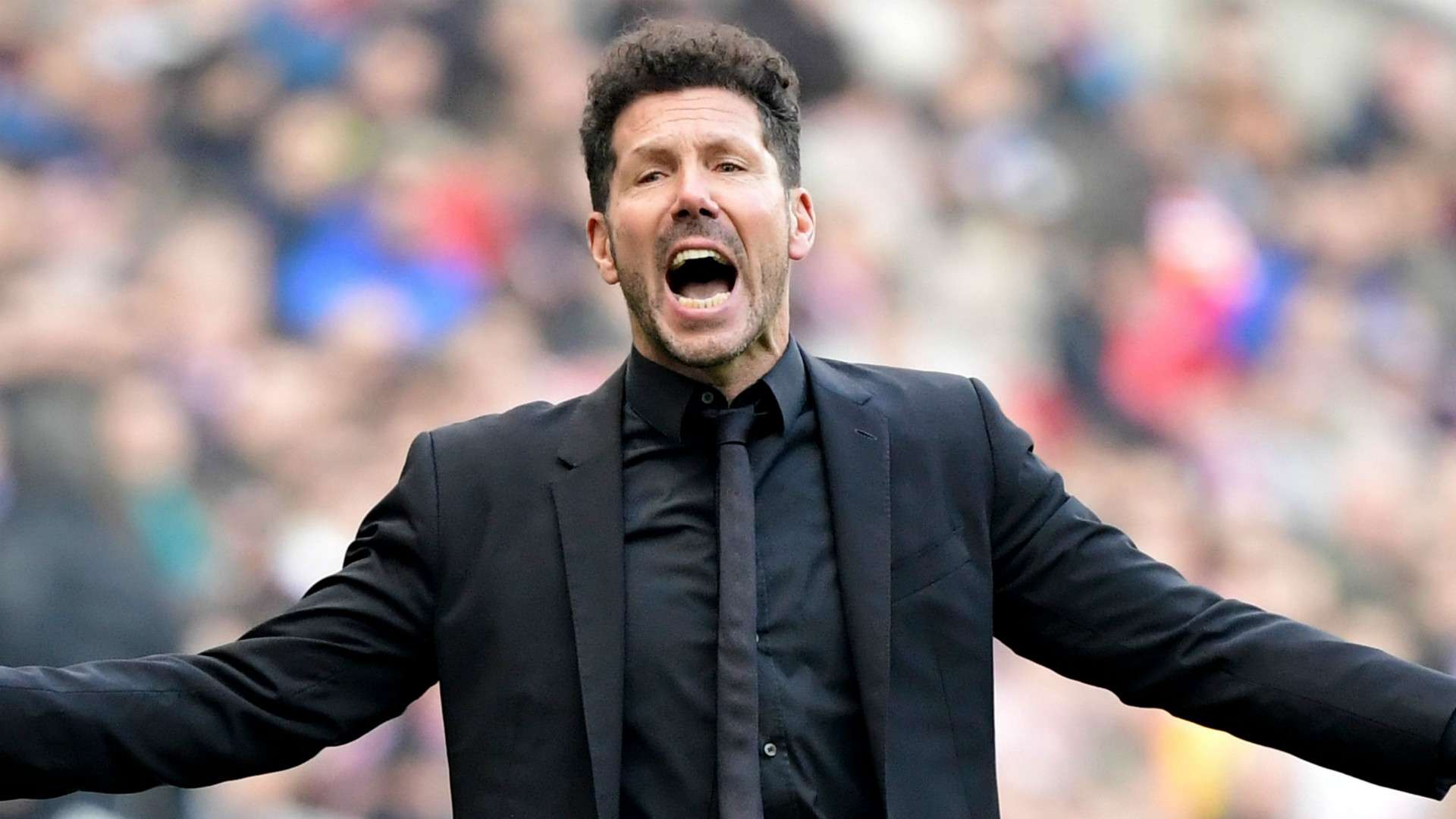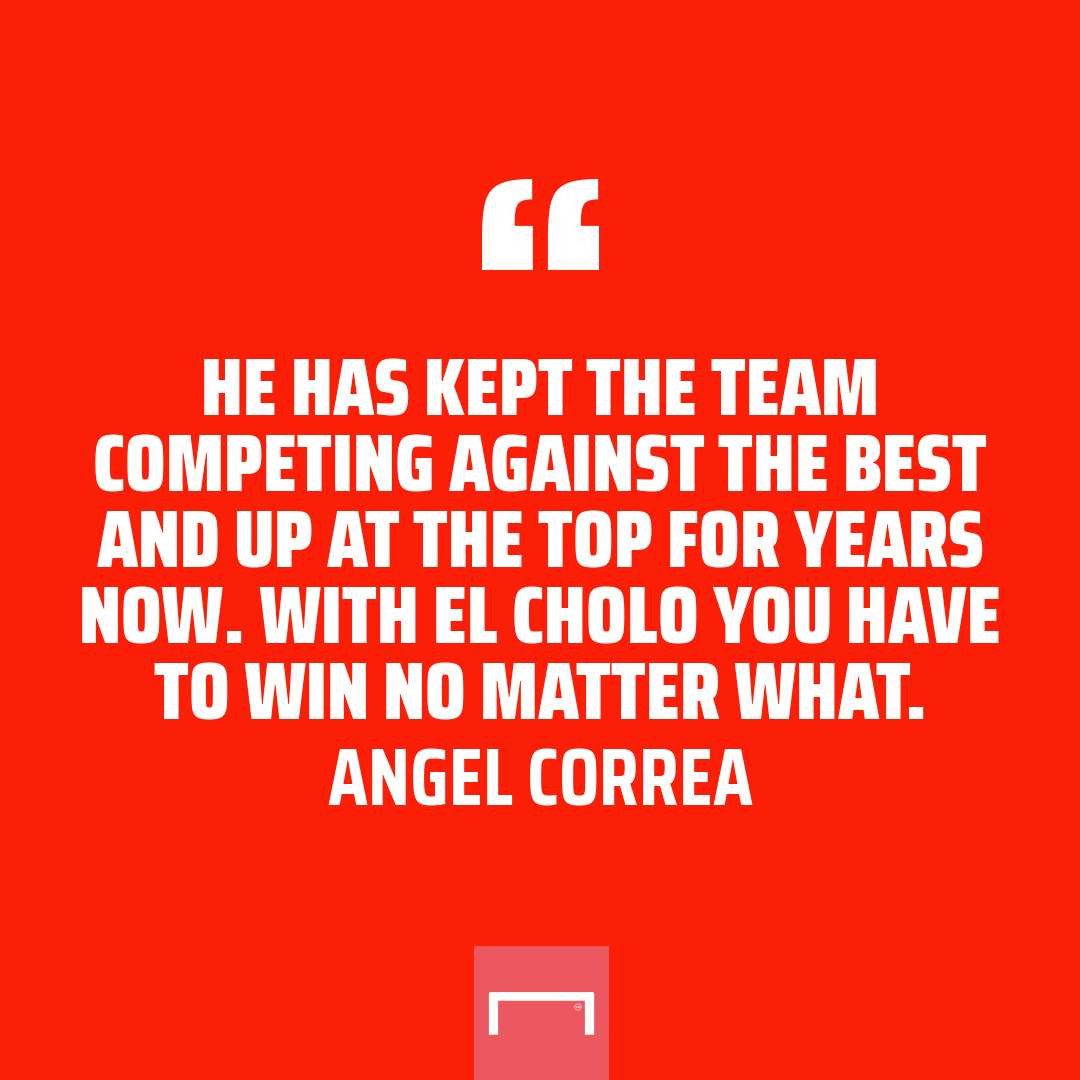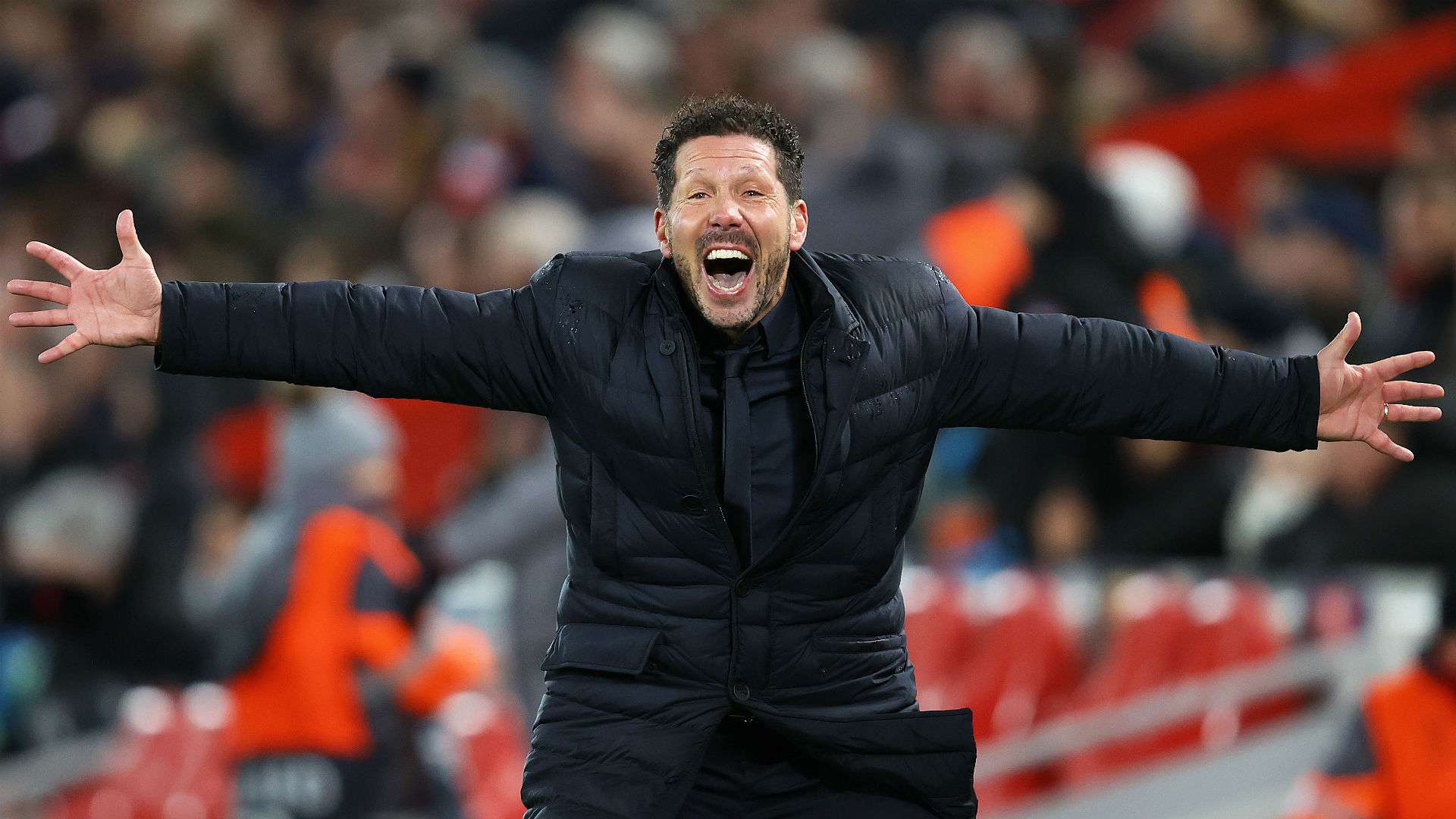Jurgen Klopp's Liverpool have been a formidable force across the last 18 months: so much so, in fact that they would be forgiven for forgetting what it feels like to lose a game.
That, in any case, was certainly the impression the German manager gave back in March, when his all-conquering Reds were dumped out of the Champions League by Atletico Madrid.
Atletico defeating the reigning champions in both legs, outscoring them 4-2 thanks to Marcos Llorente and Alvaro Morata's extra-time heroics at Anfield. Klopp, however, was not impressed with what he saw, and had some choice words after the final whistle for the mastermind behind that triumph, Diego Simeone.
"I don’t understand, with the quality they have, the football they play. They could play proper football but they stand deep and have counterattacks,” he fired to BT Sport.
"We accept it of course but it doesn’t feel right tonight. I realise I am a really bad loser, especially when the boys put such an effort in against world-class players on the other side who defend with two rows of four."
Such criticisms of course are nothing new to Simeone. Over the past eight years, he has transformed Atletico from La Liga also-rans to one of Europe's most feared teams – Thursday's quarter-final against RB Leipzig is the coach's fifth since taking over at the club – and has been accused at every step of being 'anti-football'.
Typically, he refused to rise to the bait. When asked after that brilliant Liverpool upset what it is that Atletico play for, he simply responded: “To win, with all our soul.”
At this point, though, he should not have to defend his record, even to a manager of Klopp's standing.
To write El Cholo off as a negative force which ultimately hurts the game is not only intellectually dishonest, but also an inaccurate depiction of the stunning job he has carried out in the Spanish capital since returning to his former employers in December 2011 from Racing Club.
 Getty Images
Getty Images
When he took over from Gregorio Manzano, Atletico were languishing in 10th place in La Liga, with just two Champions League qualifications in the previous 15 years.
Perhaps even more damaging to the Atleti psyche, so far did they lag behind rivals Real that the Merengue faithful, after thrashing Manzano's stragglers 4-1 earlier that season to extend their unbeaten run against their neighbours to 11 years, held up the infamous banner: “Wanted: A worthy opponent for a decent Derby.”
Simeone, with no new investment in his first transfer window, steadied the ship immediately and by the end of 2011-12 had already delivered major silverware in the shape of the Europa League title.
Victory in the Copa del Rey and a place in the Champions League followed in his first full season, as, somewhat less happily, did the loss of star striker Radamel Falcao to Monaco. The Colombian had smashed 70 goals in just 92 outings since arriving in turn to replace Manchester City-bound sensation Sergio Aguero in 2011.
Simeone, however, was barely flustered by such a critical loss, and swooped to pair ex-Barca star David Villa with the emerging talents of Diego Costa and Arda Turan – a combination that delivered La Liga just 12 months later.
Barca and Real's dominance came to an end, although the latter took their revenge with the first of two agonising Champions League final triumphs.
Since that auspicious start Simeone has maintained Atletico's place among Europe's elite, failing to make the Champions League knockout stage on just a single occasion in the last seven seasons (an anomaly quickly compensated with another Europa League gong).
He has done so not, like most of his rivals, with the help of a bottomless pit of transfer funds, but with the careful, intelligent use of the club's resources and, most notably, the re-investment of the sums received for a succession of departing stars.
When Falcao left, Atleti moved for Villa and then Antoine Griezmann. Brilliant loanee Thibaut Courtois if anything has been outshone by his successor Jan Oblak, plucked from relative obscurity at Benfica.
Diego Godin rose to become one of the world's finest centre-backs before leaving for Inter; but alongside him Simeone had already been grooming Jose Maria Gimenez for years to step up in his compatriot's absence.
And while Joao Felix may have toiled in his debut season in Madrid, he impressed in the second half of the campaign to hint that he may prove a worthy long-term heir to Griezmann, who many thought irreplaceable.
Last summer alone, Griezmann, Godin, Lucas Hernandez and Rodri, more than a third of the first-choice Atleti starting line-up in 2018-19, chose to seek their fortunes elsewhere. And while it was far from a vintage season at the Wanda Metropolitano the club nevertheless battled on to take third place, capping that achievement with that victory over Liverpool when they were at their lowest ebb amid a run of disappointing results.
The Argentine coach, be it as a player or now on the bench, has never attempted to hide his competitive streak. When Atletico are in action Simeone often appears to be playing along with his charges, stalking up and down the touchline like a caged tiger and exploding at the slightest provocation.
The players in turn leave no stone unturned in search of an advantage, gnawing away at their opponents' patience with their organisation and tenacity, forcing mistakes and the opportunity to push forward.
It is undeniable that at their worst Atletico can be abrasive and hard to watch. But the notion that they are particularly 'dirty' – an accusation repeated this week by RB Leipzig boss Julian Nagelsmann ahead of Thursday's Champions League quarter-final – is another myth.
In the last-16 tie that so offended Klopp's sensibilities, to take just one example, the Colchoneros committed fewer fouls than Liverpool over 210 minutes of play, matching the Reds on yellow cards with a mere three in the two legs combined.
The last Liga campaign tells a similar story: only seven teams in 2019-20 boasted a better disciplinary record than Cholo's men, who suffered just three reds in the entire season.
Unlike many of his colleagues, moreover, Simeone insists on sticking to that old football code of honour: what happens on the pitch, stays on the pitch.
When the ball is in play the Argentine shouts, screams, harangues players and match officials alike; but in interviews and press conferences he is the model of graciousness, declining to comment on matters not directly linked to his team or liable to cause controversy.
His loyalty to Atletico – which, it must be said, has been rewarded with a contract that makes him the highest-paid coach in the world – is another scarce commodity at the top of European football, despite a flood of reported offers to take over the likes of Manchester United and Arsenal, former club Inter and the Argentina national team.
While other clubs quarrelled with players and staff during the coronavirus lockdown to reduce their wage outgoings, Simeone and his squad silently accepted a 70 per cent cut to look out for Atletico's best interests at such a critical time.
Season after season football's intelligentsia and the dubiously subjective Madrid and Barcelona football press report with glee on how Simeone can surely take unfashionable Atleti no further – only to see him re-invent his team, silence the doubters and remain among the continent's best.
“He is a complete trainer,” Godin said of his ex-coach in an Instagram recording in May, just one of countless glowing testimonies offered by Atletico stars past and present over the years. “He is close to his players, works hard tactically, is very intelligent in preparing games. He has an innate gift for reading a match and anticipating what will happen.

“He is like an orchestra director, because he directs his players on the field but when he sees the fans quiet or the team needing encouragement, he asks them for it.”
Angel Correa, who misses Thursday's clashes due to a positive Covid-19 test, is similarly convinced of his countryman's influence, telling Ole: "He has kept the team competing against the best and up at the top for years now... With El Cholo you have to win no matter what, as we say. That is how we prepare for every game.”
That message has held together Atletico for almost a decade, despite constant player turnover and the constant challenge of taking on rivals with wildly superior budgets.
“We have to understand that it is not just important to win: it is the only thing that matters,” Simeone repeated to reporters on Wednesday as the Leipzig game approached.
Simeone is a born competitor, with a fire that, both as a player and coach, has caused him to cross the line on countless occasions. But that is true of plenty of football personalities; what sets him apart is the strength of personality to instil that same will to succeed in his squad and command unstinting respect.
"If you are not prepared to compete even going to the showers, you won't make it at Atletico”, as ex-Colchonero Augusto Fernandez joked to La Nacion.
Writing off the achievements of the best part of a decade as anti-football is to do a grave disservice to Simeone and Atletico.
A winning attitude, commitment and unswerving loyalty are just as crucial to success as beautiful, flowing play, and while his methods might not always be pleasing to the eye, there is no doubt that football would benefit from more genuine, generous personalities like El Cholo.




